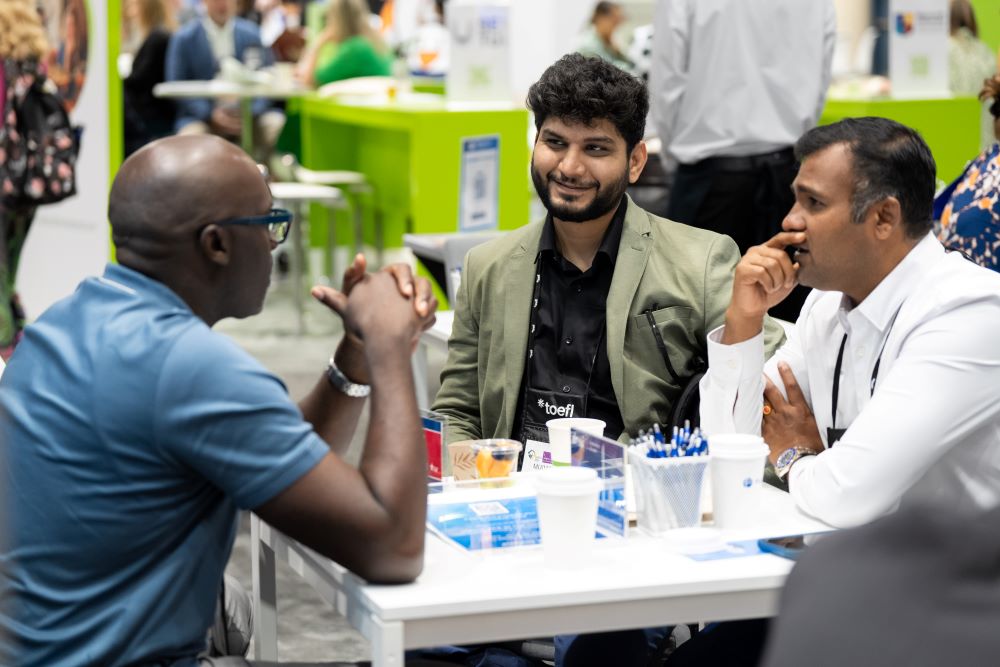See a gallery of conference pictures from the Fulbright pavilion at NAFSA 2024 and the Fulbright Institutional Training.
The Fulbright Program engaged with the international education community in New Orleans, Louisiana from May 27 – 31 at NAFSA’s annual conference and expo. The conference, which brings together over 10,000 educators and administrators from across the United States and the world each year, celebrated the themes of “resilience, renewal, and community” in 2024.
A Fulbright introductory video kicked-off the conference at the opening plenary session, featuring different perspectives on how the Fulbright Program benefits participants and partner institutions. With its presence on the expo floor, Fulbright provided a central space for program advisers, partners, alums, and others to gather and learn more about Fulbright’s exchanges. The Program also offered unique opportunities to engage with Fulbright Commission staff from abroad.
The conference also reflected the impact that Fulbright alums have had in international education as professionals and practitioners. Many Fulbrighters shared the stories of their transformative Fulbright experiences and the outcomes of their research—Fulbrighters presented 47 panels and posters throughout the conference.
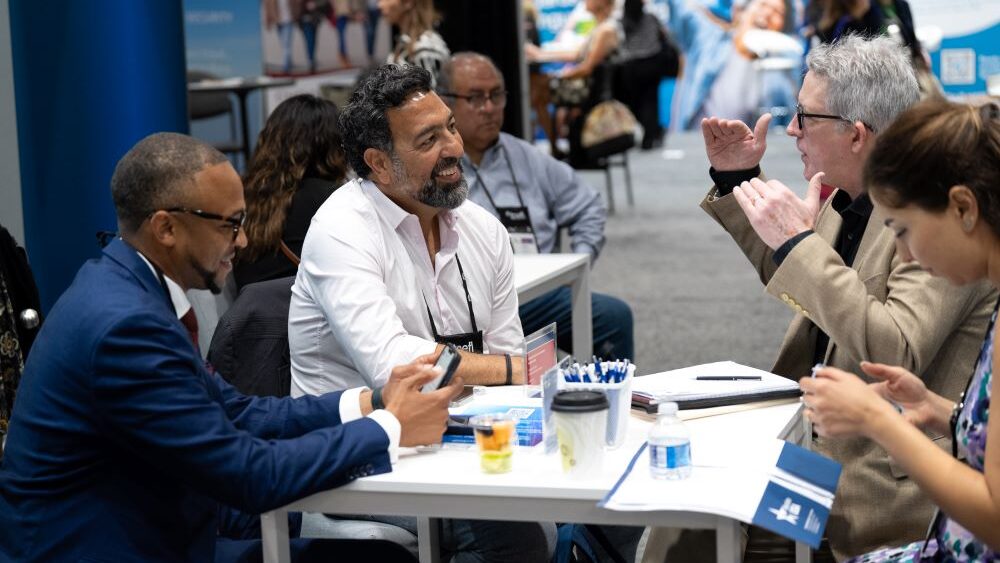
Preparing a new generation of international education leaders
Rachel Hendrix is the chair of NAFSA’s Region VII, which covers the Southeastern United States and Puerto Rico, and is an alum of the Fulbright International Education Administrator (IEA) Program. At the conference, Hendrix emphasized how Fulbright and NAFSA work together to champion resilience. She says that academic exchanges such as Fulbright help students, faculty, and staff to “be adaptable, and find peace in adversity, and be able to navigate the world and develop problem-solving skills.”
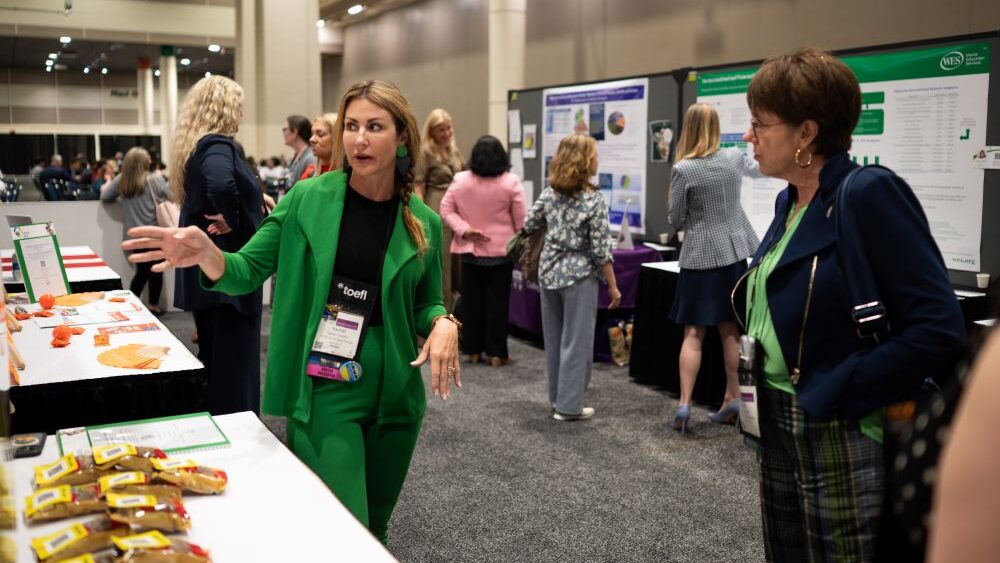
Both Hendrix and Dr. Joanna Regulska, PhD, Vice Provost and Dean of Global Affairs at UC-Davis and Vice President for Public Policy and Practice of NAFSA, agreed that the resilience of the international education community depends on a new generation of leaders. Regulska believes that short-term programs, such as Fulbright IEA and Fulbright Specialist awards, cultivate that new generation by making global opportunities available with clear connections to career fields. Hendrix commented that the two-week Fulbright IEA to Japan provided her with a “years’ worth of learning in two weeks” for her career in international education. Regulska says of her experience with the Fulbright IEA program to Korea that participants were “really embedded in the country and with people.” Since then, she has encouraged her peers in international education to participate in the Fulbright IEA Program.
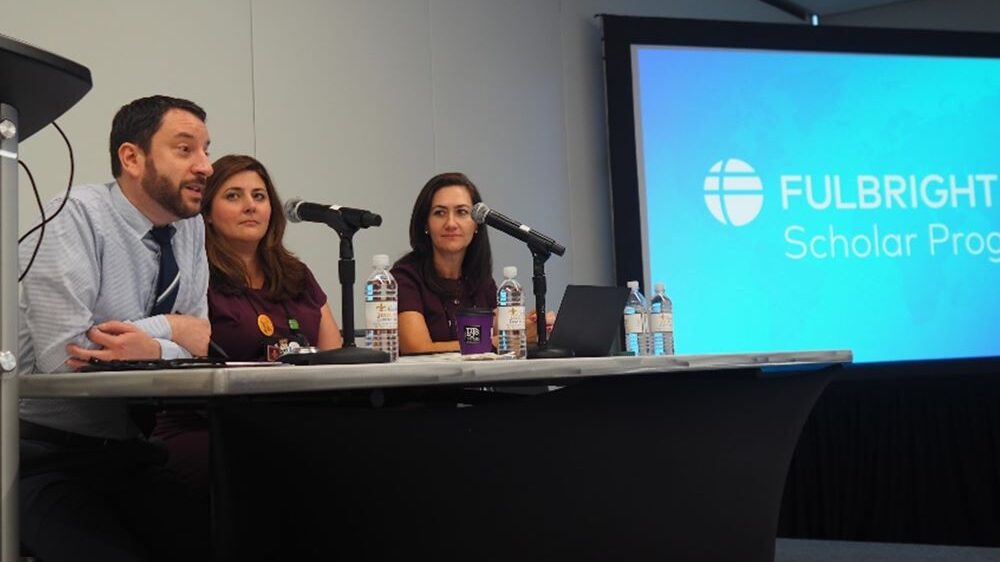
Highlighting international partnerships
The endurance of the Fulbright Program comes from its unique binational model which sees the United States working together with foreign governments to implement exchanges. Executive Directors of Fulbright Commissions and their staff represented nineteen different countries and locations at the conference. The Executive Directors met with Fulbright Program leadership from the U.S. Department of State’s Bureau of Educational and Cultural Affairs as well as other Fulbright stakeholders in New Orleans. Many Executive Directors also took time to promote their country’s Program at the Fulbright pavilion. There, they shared insights from administering the Fulbright Program alongside staff representing the U.S. Department of State. Fulbright Commissions manage programs in 49 partner countries and locations, carrying out functions such as recruiting and nominating candidates, designating qualified institutions of higher education to host U.S. Fulbrighters, and providing advising, oversight, and support to Fulbright participants and alums abroad.
Fulbright Commission representatives engaged with U.S. higher education partners and presented on the impact of Fulbright exchanges in their countries. The Fulbright Commission in Hungary, for example, presented its project which pairs Fulbright English Teaching Assistants from the United States with Roma communities to teach English and help preserve Roma folklore and culture.
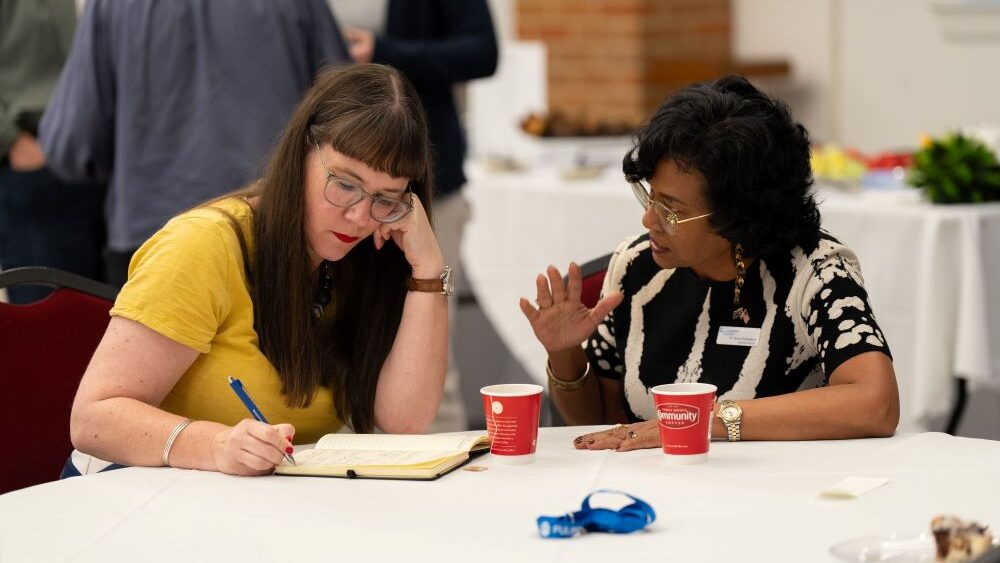
Concurrent with the NAFSA conference, representatives from U.S. colleges and universities engaged with Fulbright Program staff and Fulbright Commission Directors at a day-long Fulbright Institutional Training (FIT) hosted at the University of Holy Cross. Fulbright Program Advisors and Fulbright Scholar Liaisons from over 75 colleges and universities, including four community colleges, participated in the training, which covered topics such as how Fulbright can support campus development and internationalization goals, the selection process, and advice from advisors on engaging and encouraging applicants on campus. Fulbright Program Director Mary Kirk and President Stanton F. McNeely of the University of Holy Cross welcomed the attendees.
Fulbrighters making an impact in the field
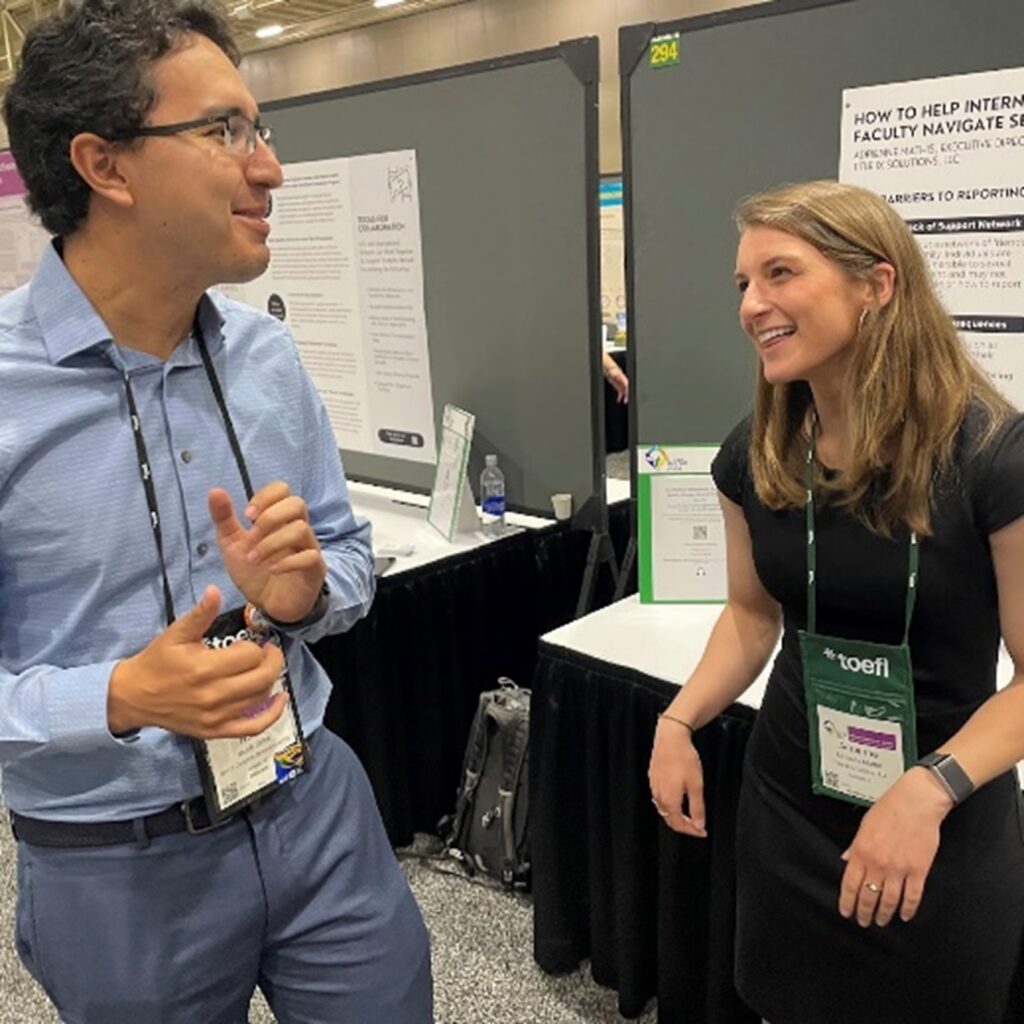
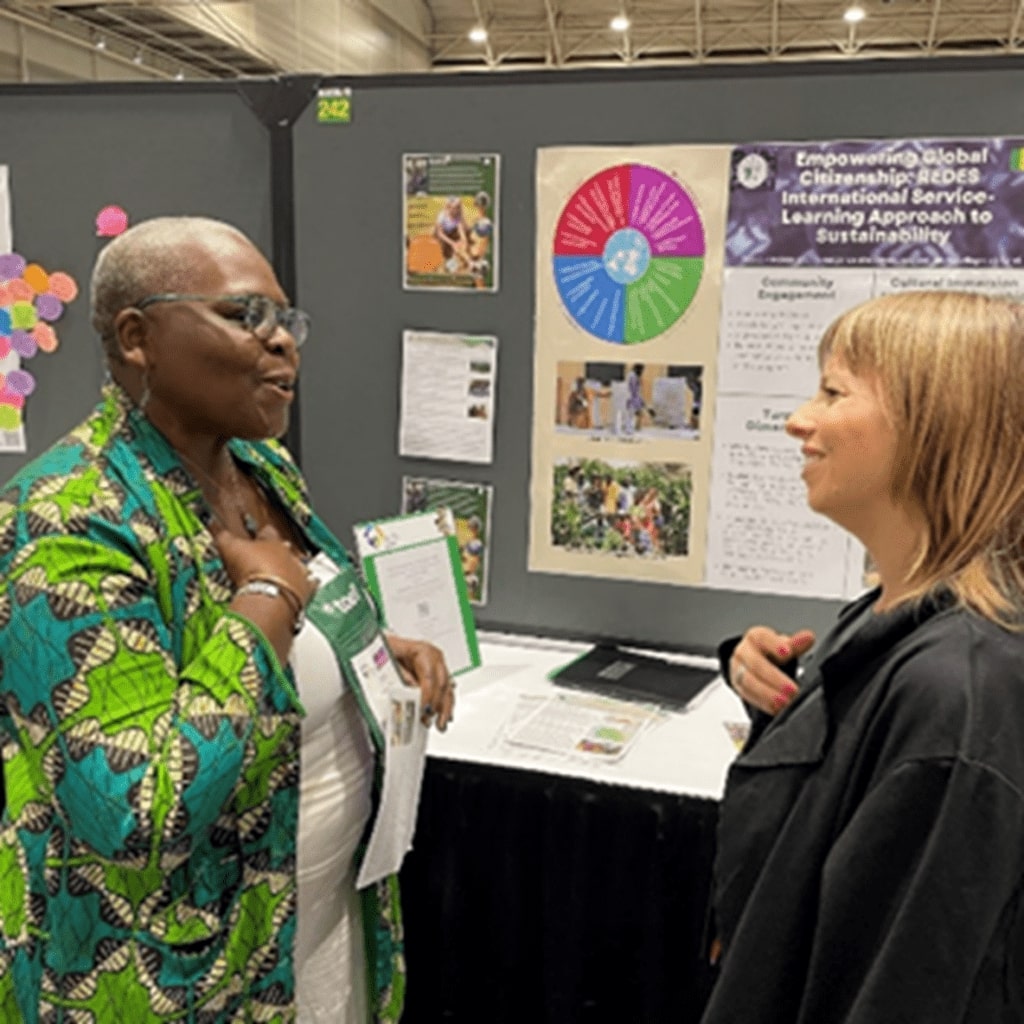
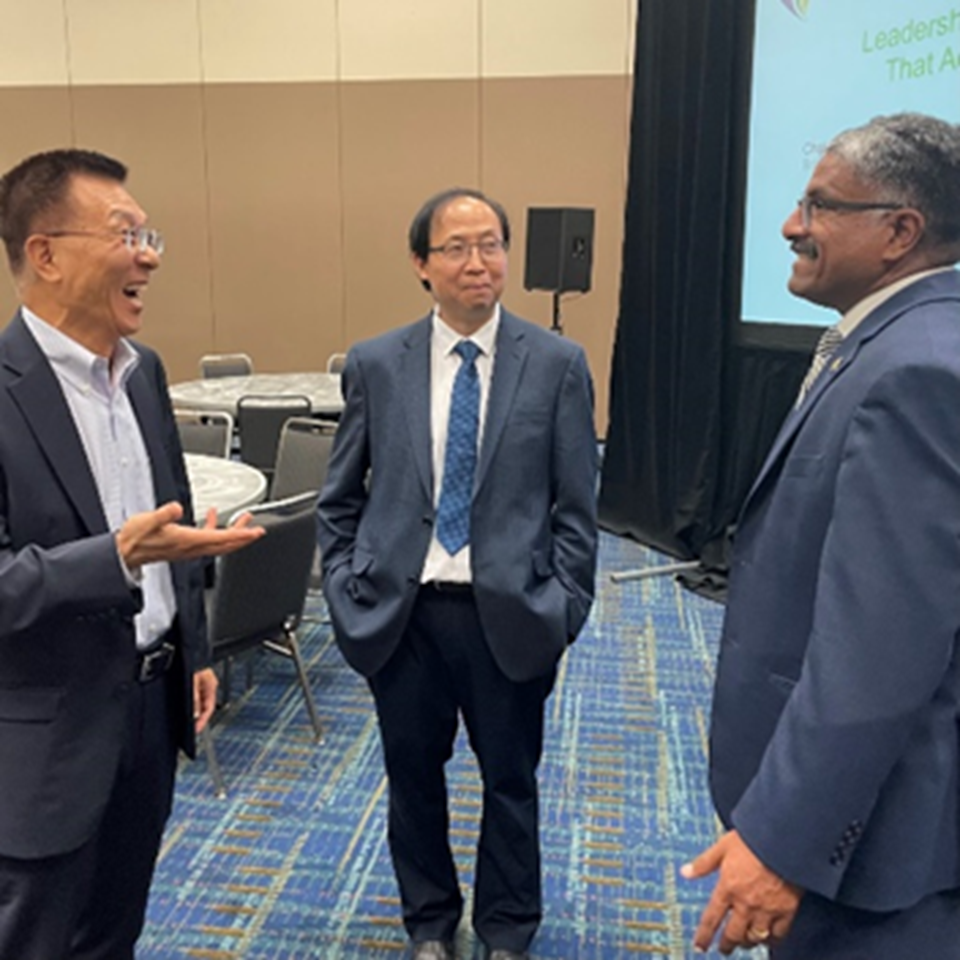
Fulbright alums contributed to 34 sessions and 13 poster presentations at the conference, showing the strength of the Fulbrighter community.
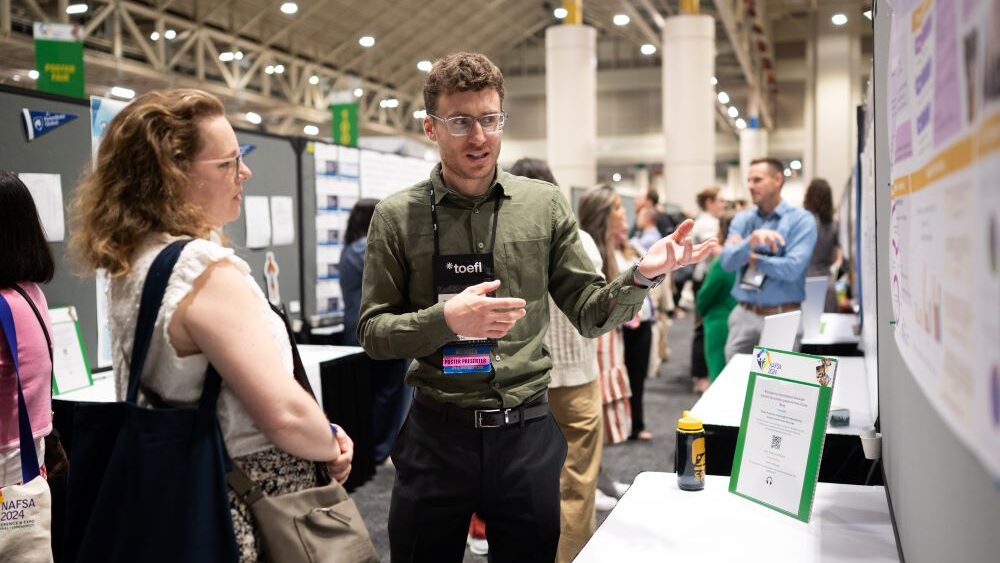
Bill McShane, Fulbright English Teaching Assistant to Germany, reflected on the lasting ties forged on his Fulbright, such as how running clubs and doting host parents led him to his present career in international education: “The skills I learned on Fulbright, namely, adaptability, affect what I do now.”
Dr. Wing-Kai To, PhD, Fulbright U.S. Scholar to Hong Kong and Assistant Provost for Global Engagement at Bridgewater State University, concluded his presentation on supporting international students with a reminder that reflects Fulbright’s goal of creating mutual understanding and lasting ties: “Belonging is also a measure of success.”
